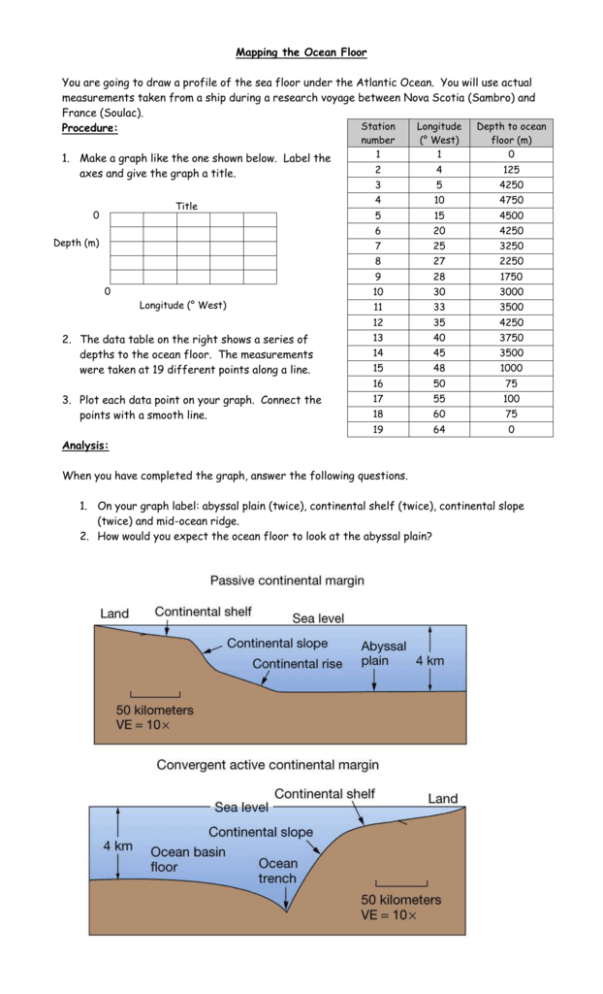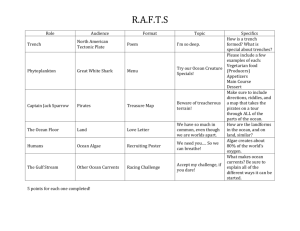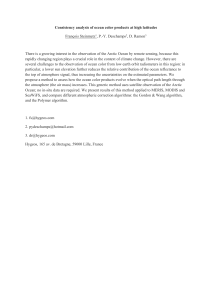Ocean Floor Mapping: Atlantic Profile Worksheet
advertisement

Mapping the Ocean Floor You are going to draw a profile of the sea floor under the Atlantic Ocean. You will use actual measurements taken from a ship during a research voyage between Nova Scotia (Sambro) and France (Soulac). Station Longitude Depth to ocean Procedure: 1. Make a graph like the one shown below. Label the axes and give the graph a title. Title 0 Depth (m) number 1 (° West) 1 floor (m) 0 2 4 125 3 5 4250 4 10 4750 5 15 4500 6 20 4250 7 25 3250 8 27 2250 9 28 1750 10 30 3000 11 33 3500 12 35 4250 2. The data table on the right shows a series of depths to the ocean floor. The measurements were taken at 19 different points along a line. 13 40 3750 14 45 3500 15 48 1000 16 50 75 3. Plot each data point on your graph. Connect the points with a smooth line. 17 55 100 18 60 75 19 64 0 0 Longitude (° West) Analysis: When you have completed the graph, answer the following questions. 1. On your graph label: abyssal plain (twice), continental shelf (twice), continental slope (twice) and mid-ocean ridge. 2. How would you expect the ocean floor to look at the abyssal plain? Physiographic Sea Floor Chart Questions 1. What is the name of the area of ocean floor spreading in the Atlantic Ocean? 2. What is the name of the area of ocean floor spreading in the Pacific Ocean? 3. What is the name of the area of ocean floor spreading in the Indian Ocean? 4. Name of the most northern trench found on the floor of the Pacific Ocean. 5. Name of the north western (connected to answer 4) trench found on the floor of the Pacific Ocean. 6. Give the name of the deepest ocean trench and in what ocean it is found. 7. Name a trench in the Indian Ocean. 8. Name the closest trench to Nova Scotia. 9. Name the seamounts that are closest to Nova Scotia. 10. Name a volcanic island found on a ridge in the Atlantic Ocean. 11. What is the Continental Shelf area off Newfoundland called? 12. Name a volcanic island group in the Atlantic Ocean that appears to have moved off a spreading ridge. 13. Name the famous volcanic islands found in the middle of the Pacific Ocean plate. 14. Name the large flat area of the ocean floor to the south of Nova Scotia.







